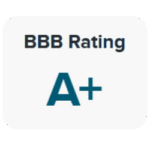A timeshare is a vacation property that permits numerous owners to occupy the same property at various periods of the year. Generally, a timeshare owner may anticipate staying at a property for one week per year. Timeshares are often condominiums or flats on resort properties, although the shared ownership concept sometimes applies to campsites, separate residences, or even hotel rooms. Timeshare ownership is often dictated by agreements and financed via various means. This blog examines the different kinds of timeshare agreements and the interest rates associated with timeshare financing.
Timeshare Agreements
Timeshare agreements are classified into three types. Which one is ideal depends on a prospector’s freedom in organizing their weeks or whether they desire the opportunity to stay in different areas here and there.
Fixed-Week Timeshare
The original timeshare is a fixed-week timeshare. Every year, this kind promises specified dates for a specific region (and occasionally even a specific unit). It is less adaptable but ideal for those who want regularity and consistency. A fixed-week timeshare eliminates the need to coordinate your chosen date or place with other guests.
Floating-Week Timeshare
This sort of timeshare was created in the early 1980s to provide more options for timeshare owners. It allows owners to utilize their timeshares for a week during a specific period or any time of year. That said, attractive weeks may be more difficult to book under this method. It is possible to own a weekly timeshare as a biannual owner, which signifies that a timeshare owner owns a week that they can use every other year.
Points-Based Timeshare
Timeshare firms may provide a points-based system in which you obtain a set amount of points that may be used to vacation at the home resort or other resorts in the brand’s network. A destination’s worth in points is determined by a set of criteria, including the location and availability of the property. This form of timeshare arrangement is intended to appeal to folks who prefer diversity over staying in the same spot year after year.
Timeshare Financing
The average price of a timeshare interval is more than $21,000, according to the American Resort Development Association. If a buyer takes out a mortgage with a 10-year loan and an interest rate of up to 17.9 percent, they might wind up spending $41,000 on their timeshare. This statistic demonstrates that buying a timeshare is a huge investment because the initial expenses can be in the tens of thousands of dollars. Unless a buyer has a large amount of cash on hand, it is unlikely they will pay the whole sum out of pocket. Most potential purchasers seek financing from standard lenders, timeshare loan specialists, and property developers to purchase timeshares.
These were just a few different kinds of timeshare agreements. If you’re looking for a reliable timeshare exit expert, contact Lonestar Transfer today!








